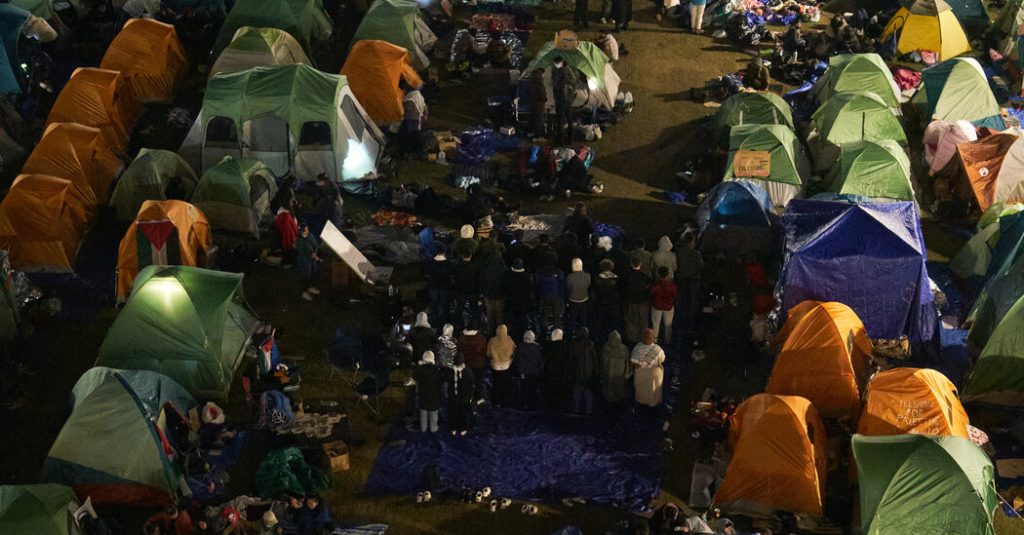Columbia University set a midnight deadline for student protesters to disband their encampment, threatening police intervention if they did not comply. The university’s president, Nemat Shafik, attempted to negotiate with the protesters before the deadline, but warned of “alternative options” if an agreement could not be reached. This ultimatum came after a previous incident where over 100 activists were arrested by city police in riot gear for refusing to leave a tent village protesting Israel’s actions in Gaza.
Protesters gathered outside the campus gates began reading Dr. Shafik’s email aloud, sparking chants about the impending deadline. Despite the tension surrounding the situation, the on-campus scene remained mostly calm, with approximately 100 people talking to each other inside the encampment. This escalation in unrest comes after months of demonstrations on campuses across the country protesting the war in Gaza, with recent incidents at Yale, NYU, Tufts, Emerson, and UC Berkeley.
Administrators struggle to balance students’ free speech rights with the need to protect Jewish students, as some protests have included hate speech, threats, or support for Hamas. Faculty at Columbia circulated a draft resolution to censure the president for what they viewed as an “unprecedented assault on student rights.” Additionally, at least one major Jewish donor cut off support for the university, citing concerns about the lack of protection for students.
The situation at Columbia reflects wider tensions on college campuses regarding free speech, protest rights, and the Israeli-Palestinian conflict. The use of police force to break up protests has drawn criticism, while the reemergence of a larger encampment following the initial clearance suggests ongoing challenges for the university administration. Student activism around social justice issues has intensified in recent years, testing the limits of universities’ abilities to manage dissent and maintain a safe environment for all students.
As the protests continue to unfold, it remains to be seen how Columbia and other universities will address the complex issues at play. The conflict between free speech, political activism, and ensuring the safety of students is likely to pose ongoing challenges for administrators. The influence of donors, faculty, and external pressures may also shape the response to campus protests and potentially impact the outcomes of such situations. Amidst the unrest, efforts to find common ground and protect students’ rights will be crucial for promoting a constructive dialogue on contentious issues.


